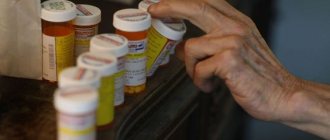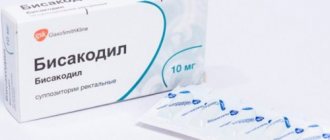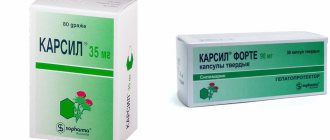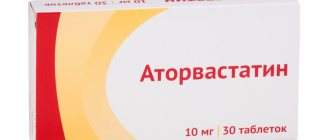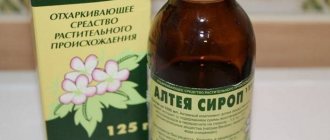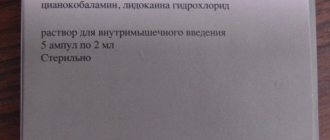| Service | Price |
| ADS-M (prevention of Diphtheria, Tetanus) | 320 rub. |
Diphtheria and tetanus are two diseases that have been well known for a long time. Both are caused by pathogenic bacteria and were quite common before compulsory vaccination campaigns began.
Loeffler's bacillus, also known as Corynebacterium diphtheria, is the causative agent of diphtheria. With this disease, the oral cavity, pharynx, larynx, skin, bronchi, and other parts of the body are affected.
The bacterium Clostridium tetani causes tetanus, an acute disease that affects the nervous system.
The ADS-M vaccine is a multicomponent, specially processed drug. Its administration will not cause negative consequences, intoxication or the occurrence of an infectious disease. After vaccination, the immune system learns to recognize and effectively fight the pathogens of tetanus and diphtheria. A vaccinated person cannot become infected with these serious diseases.
Pharmacodynamics and pharmacokinetics
It should be noted that the ADS-M vaccination means: diphtheria-tetanus toxoid in small doses. It is also a variation of the DTP vaccine , but without the pertussis component.
The basis of the vaccine is a mixture of substances that have undergone special treatment. They do not cause severe toxic reactions or infectious diseases, but form an immunological reaction. It is this reaction that is the basis of the principle of action of this vaccination, thanks to which stable immunity to tetanus and diphtheria .
This vaccine is used for revaccination in adult patients and children aged 4-6 years who previously received the DPT vaccine. Therefore, in this case, the ADSM vaccination does not so much build immunity as maintain the level of antibodies at the required level.
Also, this drug is intended for children with intolerance to the pertussis component, which is contained in DTP and ADS vaccinations, for the purpose of emergency immunization, for example, according to epidemic indications.
Importance of vaccination
The causative agent of tetanus - clostridium (tetanus bacillus) is widespread everywhere and is resistant to environmental influences. When the rod enters a child’s body, it releases an exotoxin, which is highly damaging. The course of the disease is lightning fast and very fast. The increase in symptoms occurs instantly, and mortality rates are very high.
Treatment of tetanus is carried out inpatient conditions in intensive care wards. Muscle relaxants are prescribed to relieve seizures. Quite often, patients are transferred to artificial ventilation. The pH level of the blood is adjusted with medication, and support for the functioning of the cardiovascular, excretory and respiratory systems is also required. To prevent secondary infection, antibacterial therapy is carried out.
Parents must clearly understand that even modern medicine is not able to cope with the disease in all cases. Mortality rates remain quite high. The only correct solution is vaccination against tetanus.
Indications for use
Vaccination with ADS-M for children over 6 years of age and adult patients is recommended as a prophylaxis against diphtheria and tetanus.
This vaccine is also indicated for adult patients over 18 years of age with:
- primary vaccination;
- carrying out systematic revaccination against diphtheria and tetanus. The vaccine contains a reduced dosage of diphtheria toxoid to reduce the risk of developing possible hypersensitivity reactions;
- the threat of tetanus due to injury.
Whooping cough
Whooping cough is an infectious disease transmitted by airborne droplets. It manifests itself as a prolonged, intense, obsessive cough. The incubation period for whooping cough lasts from 1 to 2 weeks. After the disease develops, the patient can be a source of infection for up to a month. In addition, asymptomatic carriage is possible.
In children under one year of age, whooping cough infection often leads to attacks of respiratory arrest. And against this background, complications develop from the nervous and cardiovascular systems. In older children, the disease begins with the symptoms of a common cold: fever, runny nose, cough, redness of the throat. Then a long, painful paroxysmal cough develops. Attacks are sometimes accompanied by vomiting, hemorrhages in the skin of the face and conjunctiva, saliva and lacrimation, and swelling of the veins of the neck. This cough can last up to six months.
Antibacterial drugs are used to treat whooping cough. However, they can be effective only in the initial period, when whooping cough is almost impossible to distinguish from other acute respiratory viral infections. During the period of paroxysmal cough, antibiotic therapy is not effective. Treatment is carried out symptomatically and has virtually no effect on the duration of the cough.
Whooping cough is extremely contagious. It affects up to 95% of unvaccinated contacts. Even now, against the backdrop of universal vaccination, cases of whooping cough are not uncommon. The disease is especially dangerous in children who have not yet had time to get vaccinated for some reason.
Side effects
This drug is characterized by low reactogenicity, but the likelihood of adverse reactions should not be excluded.
It has been established that the side effects of vaccinations in adults and children can be general or local. They usually appear within 1-2 days from the moment of administration.
Local reactions include: redness, induration, loss of sensitivity and swelling at the site where the vaccine is given.
Common side effects are: fever , moodiness, lethargy, loss of appetite and digestion.
The appearance of such symptoms after vaccination is considered normal and does not require treatment, although the use of Ibuprofen or Paracetamol . Experts also recommend drinking plenty of fluids.
Severe complications of ADS-M vaccination occur infrequently, but they can manifest themselves as anaphylactic shock, Quincke's edema, encephalitis, and meningitis.
Contraindications
Tetanus vaccination for children has low reactogenicity, so there are practically no restrictions on the composition. The main contraindication is the occurrence of allergic reactions or neurological damage after the previous injection.
Temporary contraindications for tetanus vaccination:
· influenza and acute respiratory infections;
· diathesis, eczema and other skin manifestations;
allergic reactions and immunodeficiency;
· increase in body temperature.
In these cases, vaccination is carried out after complete recovery. A preliminary consultation with a pediatrician is mandatory.
Vaccine ADS-M instructions for use (Method and dosage)
As the instructions for the ADS-M vaccine show, it is administered intramuscularly. A suitable place for its insertion in children is the anterolateral part of the thigh, under the shoulder blade or in the shoulder area.
Revaccination of children is performed at 14-16 years of age and its effect lasts for 10 years.
After 10 years, adult patients are vaccinated with ADS-M, which will help maintain immunity at the required level against tetanus and diphtheria. Then revaccinations are carried out at 10-year intervals. However, no upper age limit has been established.
Warning for the unvaccinated
After all of the above, we can say with complete confidence that a tetanus vaccine is necessary. This is the only way to prevent the disease and all the complications it can bring.
In addition, depending on the dose, the drug will provide immunity against other diseases dangerous to children. The charts, developed by experts, are designed to cover the most prominent risks for each age group.
If in doubt, consult your general practitioner or pediatrician. Experts consider immunization for each case individually, and also warn whether there are any contraindications for delaying or not completing doses.
special instructions
Intravenous injection into the buttock is unacceptable, as this may damage the sciatic nerve or blood vessels.
Carrying out immunosuppressive treatment or having an immunodeficiency can reduce the intensity of the immune response to the vaccine. Therefore, it is necessary to complete the therapy or ensure complete safety for the patient. Vaccinations can be given to people with chronic immunodeficiency when a concomitant disease does not prevent the formation of even a small level of antibodies.
Analogs
Level 4 ATC code matches:
Diphtheria-Tetanus toxoid
Tetanus toxoid
There is an imported vaccine Imovax D.T.Adult , which is better tolerated and does not lead to the development of unwanted reactions.
There are also monovalent vaccines , that is, separately for diphtheria - AD and tetanus - AS.
Difference between DTP and ADS-M
There are great similarities between DPT and ADS-M vaccinations. But DTP additionally contains a component that is directed against whooping cough.
ADS-M vaccination is recommended for adult patients and children over 4 years of age for vaccine administration or revaccination, since for this age a disease such as whooping cough is no longer dangerous.
However, in children under 4 years of age, everything is completely different - whooping cough is not only a dangerous disease, but can also be fatal. This disease can develop at lightning speed. And if an adult may have a prolonged cough, then in children a spasm of the respiratory muscles may occur, leading to a sudden stop in breathing. Only immediate resuscitation measures will help save life.
Why is tetanus dangerous?
Once tetanus toxin binds to nerve endings, it cannot be removed. To fully recover from a tetanus infection, new nerve endings must develop, which may take several months.
Consequences of tetanus infection:
· Fractures. The severity of muscle spasms can lead to fractures of the spine and other bones.
· Development of pulmonary embolism. A displaced clot may block the main artery of the lung or some of its branches.
· Death. Severe muscle spasms caused by tetanus can cause respiratory failure, which is the most common cause of death.
To prevent a sad outcome, it is recommended to vaccinate your child against tetanus on time.
Reviews of the ADS-M vaccine
One of the most discussed topics on parenting and medical forums is vaccination. According to some parents, vaccinations are a necessity, and they find it strange that anyone would even doubt it. Others believe that vaccinations are dangerous to health and the body as a whole. Therefore, disputes about them can continue endlessly.
It should be noted that reviews of the ADS-M vaccine are quite common. They are largely related to the body’s reaction to vaccination. Patients often report experiencing unwanted symptoms after the procedure. For example, some are concerned about pain and an increase in temperature up to 38 degrees. In this case, the temperature rises especially often and usually occurs in the evening or the next day after vaccination. Sometimes this lasts for at least a week. In addition, muscle pain may occur.
You can also find reports where injections were given to patients after receiving wounds to prevent tetanus. As a result, lumps and skin irritations may appear.
Among all the discussions, questions arise: what does the ADS-M vaccination help against and what is it needed for? In addition, many adults do not know that after 14-16 years it needs to be given every 10 years, and for them this was a real discovery.
In most cases, side effects last 1-2 days. But it happens when it lasts longer. Then medical intervention and medication may be required. Of course, you should not abuse the use of tablets on your own, as this can further complicate the condition. It is best to consult a doctor immediately.
Recommendations after vaccination
If the child’s general well-being is not affected, it is not necessary to change the daily routine. Walking is not contraindicated, just like going to school or going to kindergarten. There is no need to wet the injection site only on the day of vaccination. But you should refrain from playing sports for three days.
For two weeks, also avoid visiting public places: your immune system is still “distracted” by important work, and it does not need additional stress. But this does not mean that the immune system needs to be “helped” by wrapping and overheating the child. Such “additional” measures will only do harm.
If after the ADSM vaccination the injection site (leg or arm) hurts, you do not need to see a doctor. This is a normal reaction to mechanical damage to tissue when inserting a needle and drug. The pain will go away within one to two days. In rare cases, they can persist for up to a week.


